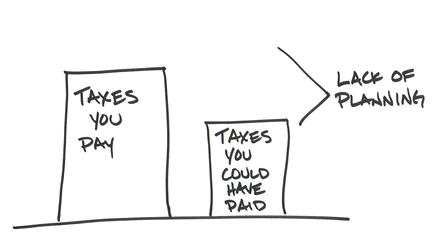Simple Tax Information
Capital Gains Tax:
Any profit you enjoy from the sale of a stock held for at least a full year is taxed at the long-term capital gains rate, which is lower than the rate applied to your other taxable income. It’s 15% if you are in a 25% or higher tax bracket and only 5% if you are in the 15% or lower tax bracket. Profits from stocks held for less than a year are taxed at your ordinary income tax rate.Ordinary dividends earned on your stock holdings are taxed at regular income tax rates, not at capital gains rates. However, “qualified dividends” are taxed at a very advantageous capital gains rate of 0% to a maximum of 15%. For dividends to be classified as “qualified” they must be paid by a U.S. corporation or a qualified foreign corporation and the holding period of the stock must be more than 60 days. There are plenty of other exceptions and definitions, so check with your broker or tax advisor to see if the dividends for your stock holdings are “qualified.” Dividends on stock held in a qualified retirement plan are not taxable income.
Stock Sales:
The formula is: Sales Proceeds – Basis = Taxable Profit or Deductible Loss.Sale proceeds can be reduced by commissions paid to the broker.
Basis is the cost of the stock plus any reinvested dividends and commissions paid for acquisition. If you inherited the stock, the basis is the fair-market value of the stock on the date of the decedent’s death or the alternate valuation date. If the stock was received as a gift, the basis is the lower of the fair-market value or the basis of the donor at the time the gift was made.
The Wash Rule:
Some investors try to benefit from selling a stock in a losing position to offset a gain in another, then turn around and buy the stock right back.The IRS will
Capital Losses:
One limitation in stock investing is the amount of losses you are allowed to deduct on your tax return. If you sell securities at a loss, you may deduct only $3,000 per year; the remainder of the loss is carried forward to future years. You may apply capital losses against capital gains in the current and future years to net out the overall profit or loss.This is called tax-loss carry forward.
Investment Advisory Firm Veteran Owned and Operated
Contact 253-948-6431 Invest@TaylorGoddard.comTempus Investment Corp is a registered investment adviser in the State of Washington and Oregon. The Adviser may not transact business in states where it is not appropriately registered, excluded or exempted from registration. Individualized responses to persons that involve either the effecting of transaction in securities, or the rendering of personalized investment advice for compensation, will not be made without registration or exemption.

